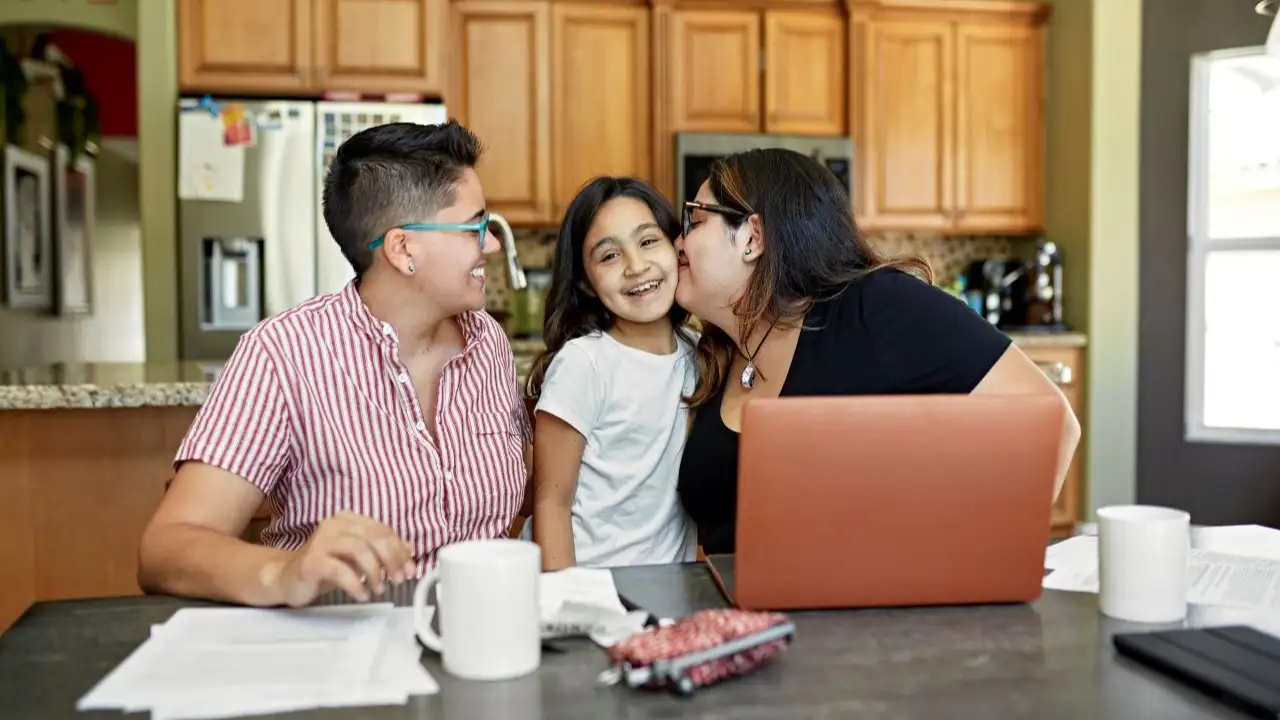
Money Tips & Education
What is direct deposit?
Oct 27, 2024
Written by
Reviewed by
Key takeaways:
Direct deposit is the electronic transfer of funds from one bank account to another.
You could use direct deposit to get paid by your employer, receive government benefits, or get your tax refund.
Direct deposit could make it easier to budget and pay down debt, since you know when money will hit your bank account.
Life gets busy, and it helps to automate whatever you can to save time. If you want to automate your finances, direct deposit takes the hassle out of payday so you can pay the bills, pay down debt, and work toward your other financial goals.
Not sure how direct deposit works or how to set it up? Let's break it down.
What is direct deposit?
Direct deposit is an electronic deposit into a bank account. Payments made through direct deposit go through the Automated Clearing House (ACH), which is a network that banks and credit unions use to transfer funds from one account to another.
If someone wrote you a check, you'd have to take it to the bank to deposit it. Or you could deposit it through the bank's mobile app.
Direct deposit saves time, since you only have to set it up once to receive payments. The kinds of payments you could get through direct deposit include:
Paychecks
Federal and state tax refunds
Unemployment benefits
Social Security benefits
Veterans benefits
Court-ordered child support payments
Stock dividends
Payments from clients or customers (if you run a business)
Direct deposits show up on your bank statements and in your transaction history, so you can easily track payments. That's also a plus if you ever need to show documentation to a lender for income verification.
How direct deposit works
Direct deposit uses ACH transfers to move money from place to place.
A payer, typically an employer or government entity, adds bank account information for a payee (that's you) into its payment system.
The payer starts the payment to the payee through its bank.
The payer's bank sends the payment through the Automated Clearing House.
Funds are taken from the payer's bank account and deposited to the payee's.
Once the transaction is processed, the bank makes the funds available to you on payday. A typical direct deposit transaction takes one to three business days to go through.
Some banks offer early direct deposit so you can get paid up to two days early. You could access your pay as soon as the transaction clears your bank, without a wait.
How to set up direct deposit
You can set up direct deposit with your payer. You'll need to complete a direct deposit enrollment form and share some information.
Here's what you'll need to get started:
Bank routing number. Your bank routing number is a nine-digit number that identifies your bank. You can find it printed at the bottom of your paper checks (usually on the left side) if your account includes them, or you can log in to your bank account online to check the details.
Bank account number. Your bank account number is specific to your account. You can also find it printed at the bottom of your checks or online.
Your personal information. You'll need to verify your name, Social Security number, and address to set up direct deposit.
A voided check. Some banks require a voided check to verify your account information.
Here's how to void a check. Write "VOID" across the front of the check. You can also write it individually on the date line, pay-to-the-order-of line, the amount box, amount line, memo line, and signature line.
What if you have a checkless checking account? Checkless bank accounts don't come with paper checks.
In that case, you could ask your bank if it's possible to print one. If not, you could ask the payer if there's another way to verify your information.
Pros and cons of using direct deposit
Direct deposit is convenient, but there are some potential drawbacks to know.
Pros
You don't have to manually deposit checks at a bank branch or through a mobile app.
Direct deposit could take less time to clear your account, so funds could be available sooner.
You can use direct deposit to receive a variety of payments, other than your regular paychecks.
Banks usually don't charge any fees to use direct deposit.
It's relatively easy to set up if you have your bank information ready.
You could split direct deposit payments to automatically route some of your pay to a savings account.
Some banks let you get paid up to two days early with direct deposit.
Cons
If you change jobs, you'll have to re-enroll your bank account in direct deposit with your new employer.
There may be an initial waiting period of two to three weeks after you enroll before you start receiving direct deposit payments.
Some employers don't offer direct deposit.
Direct deposits may be delayed if payments are sent over holidays or weekends.
Payroll software glitches could also lead to delays or errors in the payment amount.
Direct deposit doesn't boost your credit score, but it won't hurt it, either. It could, however, help your score indirectly.
Knowing when your paychecks will hit your bank account could make it easier to plan for bill payments in your personal budget. You could schedule credit card payments or other debt payments around your direct deposit dates. As long as those payments arrive on time or even early, your credit score might benefit.
Direct deposit could simplify your finances
When it comes to money, no one has time for headaches. Direct deposit means there's one less thing on your plate to worry about. If you're not enrolled in direct deposit yet, talk to your employer about whether it's an option. You might also consider a new bank account if you'd like to find one that offers early direct deposit payments.
Author Information
Written by
Rebecca is a senior contributing writer and debt expert. She's a Certified Educator in Personal Finance and a banking expert for Forbes Advisor. In addition to writing for online publications, Rebecca owns a personal finance website dedicated to teaching women how to take control of their money.
Reviewed by
Jill is a personal finance editor at Achieve. For more than 10 years, she has been writing and editing helpful content on everything that touches a person’s finances, from Medicare to retirement plan rollovers to creating a spending budget.
Related Articles
Some credit checks affect your score, but others don’t, even from the same lender. We’ll explain when and why credit checks can affect your credit.
Jane Meggitt
Author
Myth-busting: you don’t need to carry a credit card balance to have good credit! Learn how credit utilization affects credit scores.
Rebecca Lake
Author
Ready to take control of your money? Learn what a budget can do for you and how to make one.
Rebecca Lake
Author
Some credit checks affect your score, but others don’t, even from the same lender. We’ll explain when and why credit checks can affect your credit.
Jane Meggitt
Author
Myth-busting: you don’t need to carry a credit card balance to have good credit! Learn how credit utilization affects credit scores.
Rebecca Lake
Author
Ready to take control of your money? Learn what a budget can do for you and how to make one.
Rebecca Lake
Author


